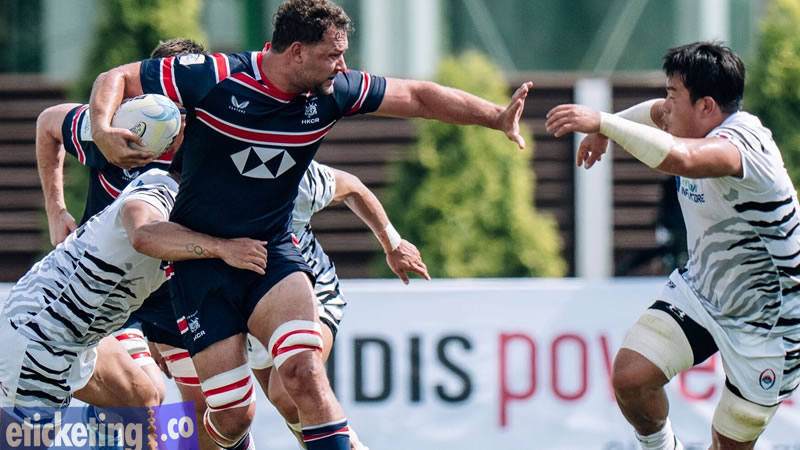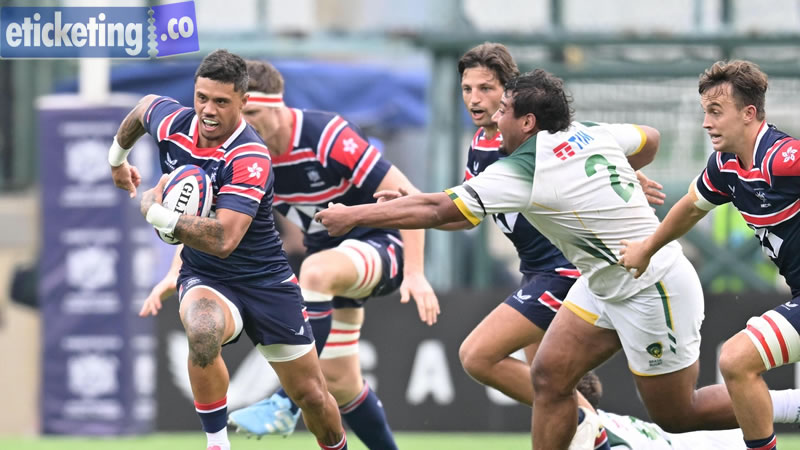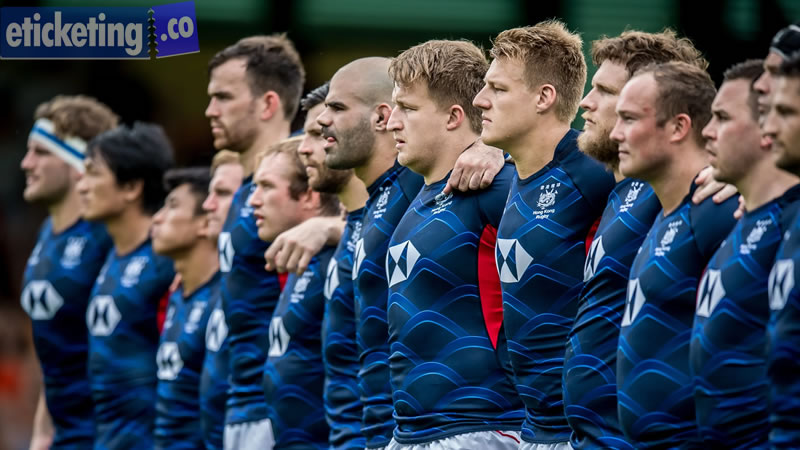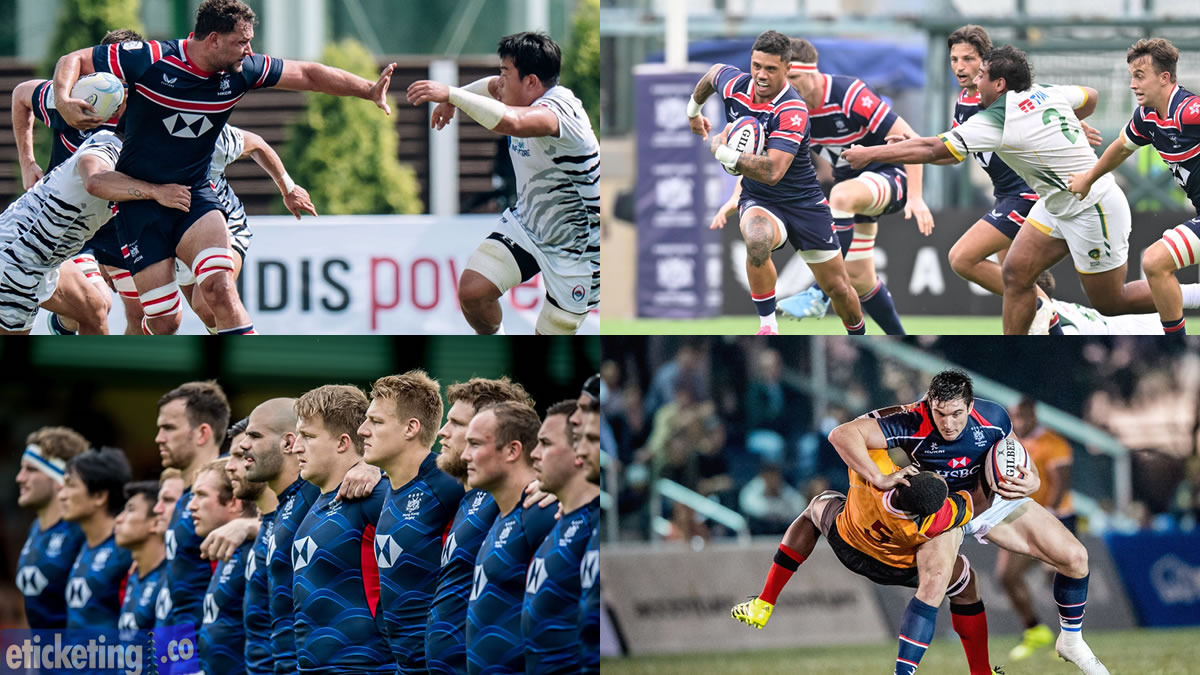This question has grown louder after allegations that Hong Kong gained an unfair competitive edge during the Rugby World Cup 2027 qualifying. Forward Luke van der Smit tested positive for a banned drug following Hong Kong’s qualifying match against South Korea, raising serious concerns about the integrity of the qualification process and whether Hong Kong’s place at the 2027 event is legitimate.
Don’t miss your chance to grab Rugby World Cup 2027 Tickets from eticketing.co. Witness the world’s best rugby nations compete for the Webb Ellis Cup across Australia’s iconic stadiums. Book early for the best seats and experience the thrill of world-class rugby!

The controversial match took place in Incheon, where Hong Kong convincingly defeated South Korea 70-22. That victory confirmed their qualification for the Australian-hosted Rugby World Cup 2027, marking the nation’s first-ever appearance in a Men’s Rugby World Cup. The win, celebrated as a historic achievement, now sits under a cloud of suspicion.
Hong Kong secured its qualification in July. Four months later, reports from within the Hong Kong rugby system revealed that South Africa-born forward Van der Smit, eligible to represent Hong Kong through qualification rules, failed a performance-enhancing drug test after the Asia Rugby Championship clash on July 5.
He even scored a try in the match, meaning his performance directly contributed to the decisive victory that secured qualification. Upon confirmation of the doping violation, Hong Kong China Rugby (HKCR) terminated van der Smit’s contract and suspended him from all rugby activities.
Rugby World Cup: Doping Precedent Puts Hong Kong Under Pressure
The union acted quickly against the player, but critics argue the consequences should extend beyond an individual athlete to the national team that benefited from his presence. Rugby has a history of doping infractions. Previous high-profile cases include S’busiso Nkosi, a South African World Cup winner who received a three-year ban in 2024 after testing positive for Boldenone.

Similarly, Canadian prop Liam Murray received a three-year suspension after banned ligandrol and cardarine metabolites were detected, and cases like his show that international rugby enforces strict anti-doping standards, raising the question of whether Hong Kong should face comparable disciplinary action ahead of the Rugby World Cup.
This doping revelation surfaced during the final qualification week for the Rugby World Cup 2027. Dubai is currently hosting matches featuring Belgium, Brazil, Namibia, and Samoa. Only one of these four nations will advance to Australia as the 24th and final confirmed participant. Meanwhile, Hong Kong already holds its spot, protected despite an athlete’s doping infraction influencing qualification.
Context matters. Brazil’s presence in the repechage tournament came only after Paraguay, which had earned qualification, withdrew due to player eligibility issues involving Ramiro Amarilla. Similarly, Namibia advanced after losing to Zimbabwe in the African qualification, yet later defeated the UAE to reach the repechage.
Get your Rugby World Cup Tickets now on eticketing.co, the trusted platform for rugby fans worldwide. Enjoy the ultimate sporting spectacle as the tournament returns to Australia in 2027. Join fans from across the globe and celebrate rugby’s biggest event live!
Rugby World Cup Final: Fairness Debate Intensifies Over Hong Kong’s Qualification
Rugby has numerous examples where nations have paid steep consequences for rule breaches, including Tahiti, Belgium, Spain, and Romania, who were all disqualified for violating player eligibility regulations in previous World Cup qualifying cycles. That backdrop makes the Hong Kong situation even more striking.
World Rugby was aware of van der Smit’s failed drug test, yet it has taken no action against Hong Kong’s qualification status. This implies the governing body intends to punish the individual player while allowing the union, and therefore the team, to proceed untouched into the Rugby World Cup Final 2027. Critics argue this represents an inconsistent disciplinary policy and undermines tournament credibility.

By allowing Hong Kong to retain its spot, despite a player who contributed to qualification violating anti-doping rules, rugby risks setting a dangerous precedent. Eligibility breaches have previously resulted in whole unions being disqualified. Doping has impacted individuals. Now, a case where doping directly affected qualification may go unpunished at the team level.
In simple terms, Hong Kong gained an unfair competitive benefit in a qualifying match that secured its Rugby World Cup debut. While the player is facing fines, many believe justice requires that the national team also face proper sanctions. As the world prepares for the Rugby World Cup 2027, the sport must decide whether it will prioritize fairness and slide or allow this dispute to pass without liability.
Rugby World Cup 2027 Tickets are now available at eticketing.co! Be part of the excitement as Australia hosts the biggest rugby tournament in the world. Secure your seats today and witness the world’s top rugby nations battle for the Webb Ellis Cup. Don’t miss this chance to experience world-class rugby live in action!
